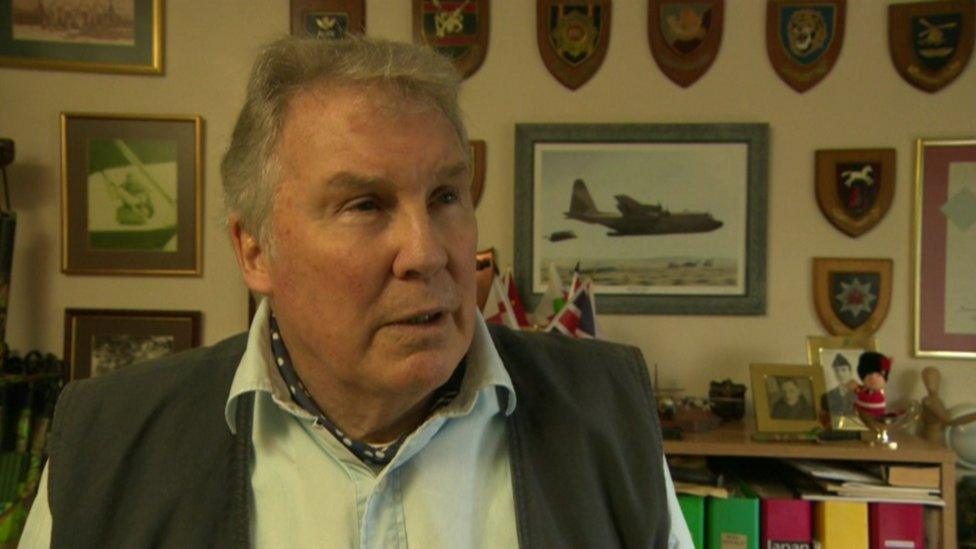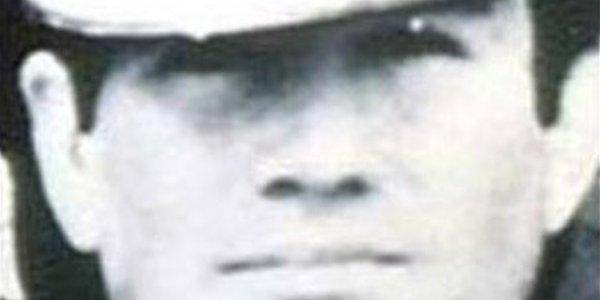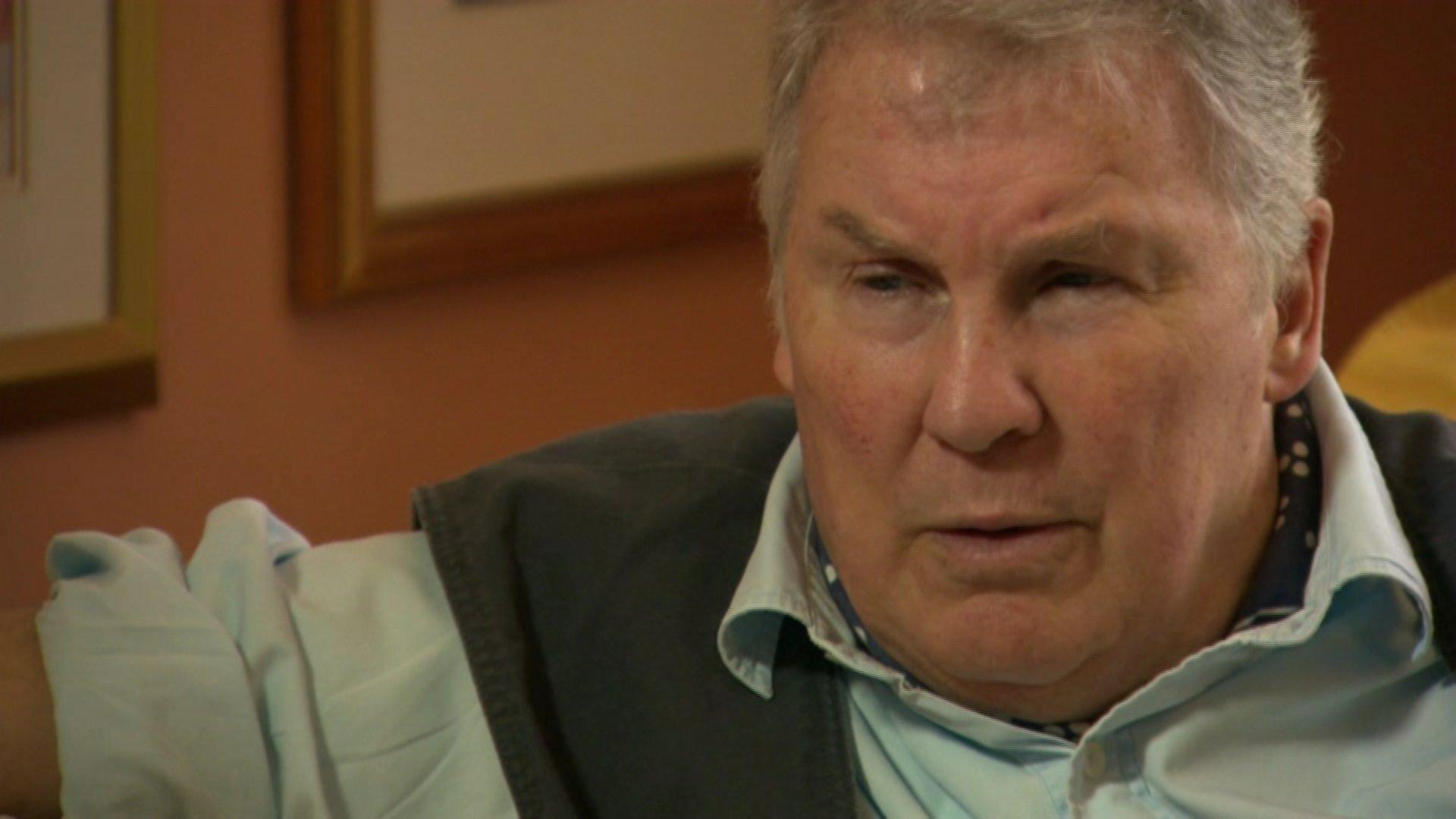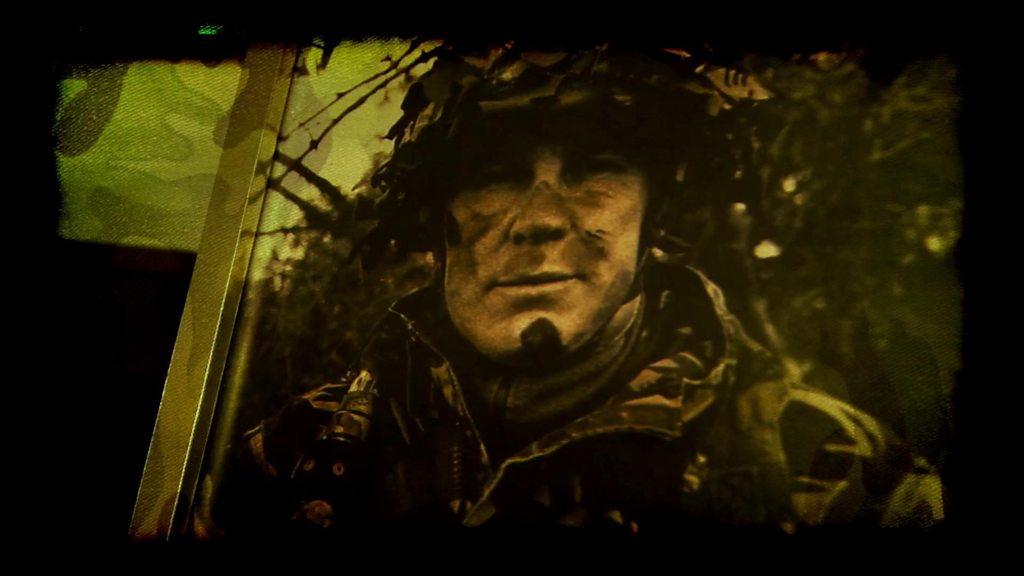Fred Holroyd offers to give evidence in secret court
- Published

Fred Holroyd served in Northern Ireland in 1974 and 1975
An ex-military intelligence officer has offered to give evidence in secret court hearings about allegations of murders and collusion by the Army.
Fred Holroyd's evidence includes claims of collusion in the 1974 Dublin and Monaghan bombings, in which 33 died.
He will also claim that Army Captain Robert Nairac killed an IRA member in the Republic of Ireland.
The testimony could be used in future legal action against the Ministry of Defence and security forces.
Mr Holroyd served in Northern Ireland in 1974 and 1975.
Who is Fred Holroyd?
One of his roles was as liaison between the Army and Royal Ulster Constabulary and he has already been interviewed by Police Ombudsman investigators about allegations against members of RUC Special Branch.
The former intelligence officer is currently suing the MoD, alleging that he was forced out of the Army because of concerns he raised.
He also plans to repeat claims made previously about former British Army Captain, Robert Nairac, who was abducted and murdered by the IRA in May 1977. His body has never been found.
Posthumously awarded the George Cross, many within the military and security forces regard him as a hero.
Fred Holroyd claims Nairac boasted to him about killing IRA member John Francis Green at a farmhouse in County Monaghan in January 1975.

Captain Robert Nairac was abducted from a bar and later shot dead
"I think Robert thought that I was like them, you know, that I was part and parcel of the shoot-to-kill syndrome," he said.
Holroyd claims Nairac outlined details of the killing and showed him a photograph he claimed to have taken afterwards.
"It was quite distinctive the photograph. First of all it was colour Polaroid, only the SAS got colour Polaroid, nobody else did, we all got black and white, the other intelligence people. "
That claim has been discounted by two Garda (Irish police) investigations and earlier this month the man who heads the commission set up to find the bodies of The Disappeared also disputed the claim.
Mr Holroyd says his testimony will also include an allegation that Army experts made the bombs the UVF used in the Dublin and Monaghan bombings.

How will the evidence be given?
The evidence would be given using a legal mechanism known as Closed Material Procedures, which became law in the Justice and Security Act 2013.
It allows intelligence material deemed to be "secret" and a potential risk to national security to be heard behind closed doors by a judge and security-cleared "special advocate".
The advocate, appointed to represent the interests of an individual claimant, is not allowed to reveal precise details of the evidence, but can provide a loose summary or "gist" of what has been said.
The lawyers say he wants to give evidence using Closed Material Procedures to avoid breaching the Official Secrets Act and "to protect those he knows may be at continuing risk if exposed."
The Belfast based law firm KRW Winters has opposed the use of Closed Material Procedures, but now says it can see some merit if the process is also available to those wishing to provide evidence about wrong doing by the state.
They have made an application to the Special Advocates Support Unit and the Crown Solicitors' Office requesting that Mr Holroyd is allowed to "give evidence about his knowledge and understanding of British security force activities during his period of deployment to Northern Ireland".

Fred Holroyd was asked by the BBC why he had offered to take part in the process.
"There is just a faint chance that they might be able to do something about what happened and make sure it doesn't happen again," he says.
"That the judiciary will turn on the government and say this was wrong, it shouldn't have happened, we apologise, you will apologise for this and we'll make sure that there are methods and systems that are brought in to stop this happening again."
- Published27 February 2018

- Published27 February 2018
